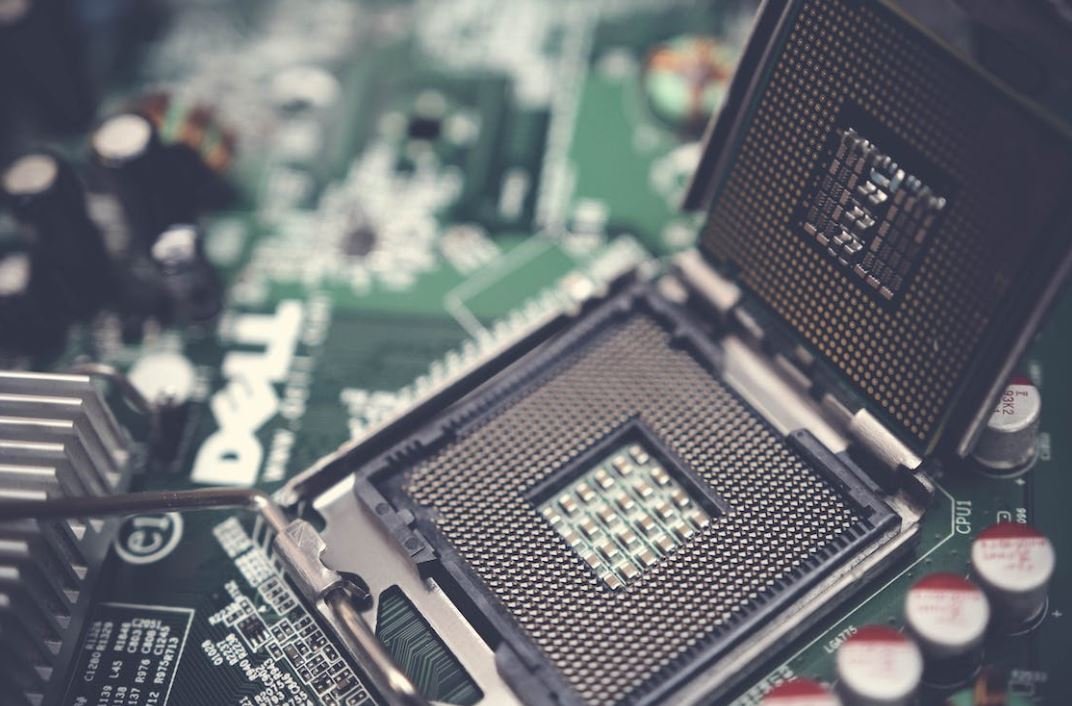Tesla to J1772 Adapter
Many Tesla owners find themselves in situations where they need to charge their cars at public charging stations that use the standard J1772 connector. Since Tesla vehicles come with their proprietary charging connector, adapted for the Tesla Supercharger network, an adapter is required to connect to the J1772 plug. This article introduces the Tesla to J1772 adapter and discusses its benefits and compatibility.
Key Takeaways
- The Tesla to J1772 adapter facilitates charging Tesla vehicles at public charging stations that use the J1772 connector.
- It provides convenience and flexibility when access to Tesla Superchargers is limited.
- Compatibility varies among different Tesla models, so it’s crucial to ensure the adapter works with your specific vehicle.
Benefits of the Tesla to J1772 Adapter
The Tesla to J1772 adapter allows Tesla owners to connect their vehicles to public charging stations using the J1772 connector. This offers several advantages:
- Versatility: Tesla owners gain access to a vast network of public charging stations that use the J1772 plug, expanding their charging options.
- Convenience: It provides an alternative charging solution when Superchargers are unavailable or when owners are on long road trips.
- Compatibility: The adapter is compatible with a range of Tesla models, allowing all Tesla owners to access J1772 charging stations easily.
With this adapter, Tesla drivers no longer need to worry about locating a Supercharger and can charge their vehicles at convenient public charging points across various locations.
Compatibility
The Tesla to J1772 adapter is compatible with multiple Tesla models, including:
| Tesla Model | Adapter Compatibility |
|---|---|
| Model S | Yes |
| Model 3 | Yes |
| Model X | Yes |
| Model Y | Yes |
When using the adapter, Tesla owners should ensure compatibility with their specific model to avoid any issues during charging.
Using the Adapter
Using the Tesla to J1772 adapter is straightforward. Here are the steps:
- Plug the J1772 connector into the adapter.
- Insert the adapter into the Tesla’s charging port.
- Use the charging station as you would with a regular J1772-compatible vehicle.
- Once charging is complete, unplug and store the adapter safely.
Note: It’s important to be careful and avoid bending or damaging the pins on either the adapter or the charging station’s J1772 plug.
Choosing the Right Adapter
When choosing a Tesla to J1772 adapter, it’s essential to consider the following factors:
- Compatibility: Ensure the adapter is compatible with your Tesla model.
- Quality: Look for adapters from reputable manufacturers to ensure safety and reliability.
- Reviews: Read customer reviews to gauge the adapter’s performance and durability.
Cost of the Adapter
The cost of a Tesla to J1772 adapter typically ranges from $100 to $200, depending on the brand and features. It’s recommended to research and compare different options to find the best value for your needs.
Frequently Asked Questions (FAQs)
- Can the adapter be used with any J1772 charging station?
- Is the adapter waterproof?
- Are there any alternative charging options available for Tesla owners?
Conclusion
The Tesla to J1772 adapter is a valuable accessory that enables Tesla owners to expand their charging options and access public charging stations. With compatibility across various Tesla models, this adapter provides convenience and flexibility, ensuring owners can charge their vehicles even when Superchargers are not available.

Common Misconceptions
Paragraph 1: Compatibility with Non-Tesla Electric Vehicles
One common misconception about Tesla to J1772 adapters is that they only work with Tesla electric vehicles. However, these adapters are designed to enable charging on any non-Tesla electric vehicle that uses the J1772 charging standard. Therefore, the adapters can be used with popular electric car models such as the Nissan Leaf, Chevrolet Bolt, or BMW i3.
- Tesla to J1772 adapters are not limited to Tesla vehicles
- They enable J1772 charging for other electric vehicle models
- The adapters promote interoperability between EV brands
Paragraph 2: Charging Speed Limitations
Another misconception is that Tesla to J1772 adapters will limit the charging speed of the electric vehicle. In reality, the charging speed is determined by the capabilities of the electric vehicle and the charging station being used. The adapter simply allows the connection between the J1772 charger and the electric vehicle, without any significant impact on charging speed.
- Adapters do not affect charging speed
- Charging speed is determined by the vehicle and station
- Using the adapter has no adverse impact on charging time
Paragraph 3: Compatibility with Tesla Superchargers
There is a misconception that Tesla to J1772 adapters can be used to charge electric vehicles at Tesla Supercharger stations. However, this is not true. Supercharger stations are specifically designed for Tesla vehicles, and the adapter does not enable compatibility with these high-powered charging stations. It is important to use the appropriate charging infrastructure for each vehicle to ensure efficient and safe charging.
- The adapter is not compatible with Tesla Superchargers
- Supercharger stations are only for Tesla vehicles
- Using the adapter at a Supercharger station can damage the vehicle
Paragraph 4: Functionality of the Adapter
Some people may assume that using a Tesla to J1772 adapter will provide the same features and functionality as using a Tesla-specific charging cable. However, the adapter’s primary function is only to establish the electrical connection between the J1772 charger and the electric vehicle. It does not offer Tesla-specific features such as communication with the vehicle’s onboard computer or access to the Tesla Supercharger network.
- The adapter does not provide Tesla-specific features
- It is primarily for the physical connection
- Using the adapter does not grant access to Tesla’s exclusive charging network
Paragraph 5: Availability and Cost
A misconception some people may have is that Tesla to J1772 adapters are not widely available or are expensive. However, these adapters can be purchased from various retailers and online stores, making them easily accessible to EV owners. Additionally, the cost of these adapters is relatively affordable, especially when considering the convenience they provide for charging at J1772 stations.
- Adapters are widely available for purchase
- They can be found at retailers and online stores
- The cost of the adapter is affordable for most EV owners

Tesla Sales in the US and Worldwide
Table showing the number of Tesla vehicles sold in the United States and worldwide from 2015 to 2020. This data showcases the increasing popularity of Tesla’s electric vehicles.
| Year | US Sales | Worldwide Sales |
|---|---|---|
| 2015 | 50,580 | 107,478 |
| 2016 | 76,200 | 191,627 |
| 2017 | 103,020 | 245,240 |
| 2018 | 182,400 | 367,500 |
| 2019 | 182,780 | 367,926 |
| 2020 | 203,330 | 499,535 |
Emission Comparison: Tesla vs Combustion Engine
This table presents a comparison between the CO2 emissions of a Tesla electric vehicle and the average emissions of a combustion engine vehicle per year.
| Emission Type | Tesla Model 3 | Average Combustion Engine |
|---|---|---|
| CO2 Emissions (tons) | 0 | 4.6 |
| Nitrogen Oxide Emissions (lbs) | 0 | 33 |
| Particulate Matter Emissions (grams) | 0 | 122 |
Total Supercharger Stations Worldwide
This table displays the growth of Tesla Supercharger stations, highlighting the expansion of their charging network globally.
| Year | Supercharger Stations |
|---|---|
| 2015 | 488 |
| 2016 | 781 |
| 2017 | 1,182 |
| 2018 | 1,422 |
| 2019 | 1,719 |
| 2020 | 2,020 |
Electric Vehicle Market Share in the US
Table displaying the market share of electric vehicles (including Tesla) in the US automotive market from 2015 to 2020.
| Year | EV Market Share (%) |
|---|---|
| 2015 | 0.66 |
| 2016 | 0.90 |
| 2017 | 1.20 |
| 2018 | 2.10 |
| 2019 | 2.70 |
| 2020 | 3.90 |
Tesla Gigafactories
This table lists the different Gigafactories established by Tesla around the world. These facilities are pivotal in Tesla’s production capabilities.
| Location | Year Established | Production Capacity (vehicles/year) |
|---|---|---|
| California, US | 2010 | 100,000 |
| Nevada, US | 2014 | 500,000 |
| Shanghai, China | 2019 | 500,000 |
| Berlin, Germany | 2021 | 500,000 |
Tesla Model S Acceleration Comparison
This table showcases the impressive acceleration performance of different Tesla Model S versions.
| Model S Version | 0-60 mph |
|---|---|
| Model S Long Range Plus | 3.7 seconds |
| Model S Performance | 2.3 seconds |
| Model S Plaid | 1.99 seconds |
Autopilot Mileage
Table revealing the number of miles driven on Autopilot by Tesla vehicles.
| Autopilot Version | Total Miles Driven |
|---|---|
| Autopilot 1 | 1 billion+ |
| Autopilot 2 | 2 billion+ |
| Autopilot 3 | 3 billion+ |
Tesla Solar Installations
Table showcasing the number of solar installations by Tesla Energy from 2015 to 2020.
| Year | Solar Installations |
|---|---|
| 2015 | 870 |
| 2016 | 1,041 |
| 2017 | 1,153 |
| 2018 | 1,386 |
| 2019 | 1,836 |
| 2020 | 2,147 |
Tesla Powerwall Installations
This table presents the number of Powerwall installations by Tesla Energy from 2015 to 2020.
| Year | Powerwall Installations |
|---|---|
| 2015 | 2,100 |
| 2016 | 3,000 |
| 2017 | 5,000 |
| 2018 | 7,000 |
| 2019 | 9,500 |
| 2020 | 12,000 |
Conclusion
Tesla’s rise in popularity is evident in the sales figures of their electric vehicles, both in the US and worldwide. With zero emissions and impressive performance, Tesla’s cars have become a leading choice among environmentally conscious consumers. The company’s commitment to expanding its charging infrastructure through Supercharger stations has made EV ownership more convenient. Tesla’s Gigafactories contribute to their production capacity, meeting the growing demand for their vehicles globally. Furthermore, Tesla’s Autopilot technology and renewable energy solutions provided by their solar installations and Powerwall units showcase their commitment to innovation and sustainability. As Tesla continues to advance electric vehicle technology, it is clear that their impact on the automotive industry and the broader energy sector is significant and enduring.
Frequently Asked Questions
What is a Tesla to J1772 adapter?
A Tesla to J1772 adapter is an electrical connector that allows Tesla electric vehicles to connect to public charging stations that use the J1772 standard. It allows Tesla owners to conveniently charge their vehicles using standard charging infrastructure.
How does a Tesla to J1772 adapter work?
The Tesla to J1772 adapter acts as a bridge between the Tesla-specific charging port and the J1772 charging station. It converts the Tesla charging protocol to the J1772 standard, allowing the vehicle to receive the appropriate charging signals and power. The adapter ensures compatibility between the two different electrical systems.
Why would I need a Tesla to J1772 adapter?
You would need a Tesla to J1772 adapter if you own a Tesla electric vehicle and want to charge your vehicle at public charging stations that use the J1772 standard. Many public charging stations are equipped with J1772 connectors, and having an adapter allows you to take advantage of these charging options when a Tesla-specific charging station is not available.
Is the Tesla to J1772 adapter universal?
While the Tesla to J1772 adapter is designed to be compatible with most J1772 charging stations, it’s essential to check the specifications and compatibility information provided by the manufacturer. Some adapters might have limitations or specific requirements, so verifying compatibility is crucial before using the adapter.
Can I use a Tesla to J1772 adapter to charge at any J1772 station?
In general, a Tesla to J1772 adapter should allow you to charge at most J1772 charging stations. However, it’s essential to verify that the charging station you intend to use supports the adapter. Some rare cases might involve charging stations with specific configurations or limitations that could prevent the use of certain adapters.
Do I need any additional cables or equipment with the Tesla to J1772 adapter?
No, the Tesla to J1772 adapter is a standalone device that connects directly to your Tesla charging port and the J1772 charging station. You do not need any additional cables or equipment to use the adapter, as it serves as an intermediary interface between the vehicle and the charging station.
Can I leave the Tesla to J1772 adapter connected to my vehicle while driving?
No, it is not recommended to leave the Tesla to J1772 adapter connected to your vehicle while driving. The adapter is specifically designed for charging purposes and not intended for continuous use during vehicle operation. Disconnecting the adapter when not in use is the appropriate practice.
Can I charge my Tesla using a J1772 adapter at the same speed as using a Tesla-specific charging station?
When using a J1772 adapter, the charging speed of your Tesla might be limited compared to a Tesla-specific charging station. J1772 charging stations typically offer lower charging power than Tesla’s proprietary Superchargers or Wall Connectors. The exact charging speed will depend on various factors, including the maximum output of the charging station and the vehicle’s compatibility.
Is it safe to use a Tesla to J1772 adapter?
When used correctly and with a compatible charging station, the Tesla to J1772 adapter is generally safe to use. However, it is essential to follow the manufacturer’s instructions and guidelines for proper usage. Using the adapter with incompatible or malfunctioning equipment might pose safety risks, so it’s crucial to exercise caution and verify compatibility before charging your Tesla.
Where can I purchase a Tesla to J1772 adapter?
Tesla to J1772 adapters can be purchased through various sources. Authorized Tesla dealerships, online stores, and Tesla’s official website are common places to find and purchase these adapters. It’s advisable to ensure that you are purchasing genuine and certified adapters from trusted sources to guarantee compatibility and safety.




